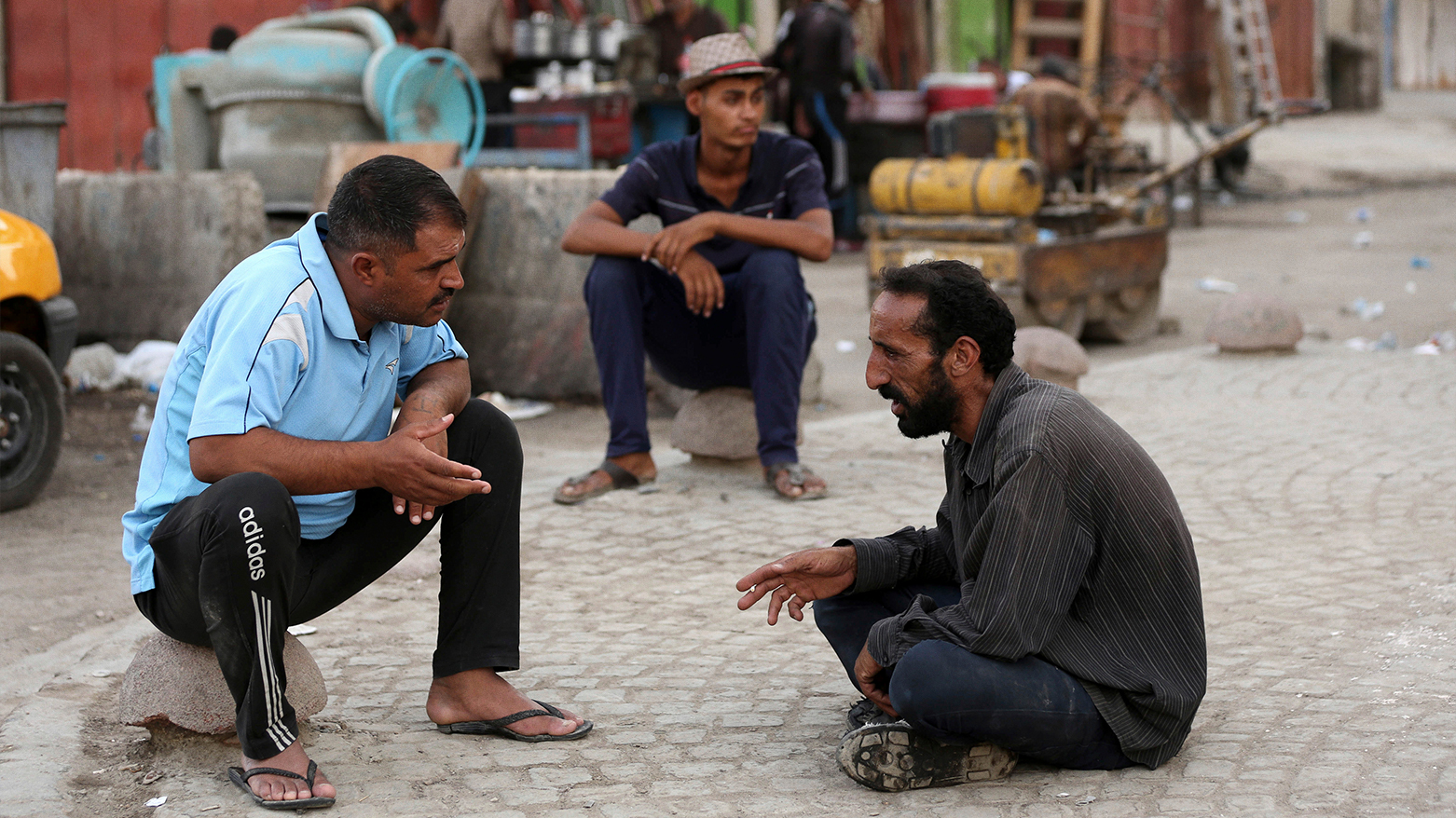‘Disastrous’: Anger Mounts on Iraqi Highways Over Unemployment, Decay
Widespread youth unemployment and collapsing services fuel growing anger across Iraq, with citizens blaming officials and a broken system. Previous Kurdistan24 reports document a pattern of violent protests and dire economic statistics, suggesting a deepening crisis.

ERBIL (Kurdistan24) – A journey along the highways connecting Iraq's major cities, from the southern port of Basra through Baghdad and north to Mosul, reveals a stark and consistent landscape of national crisis: pervasive youth unemployment and the visible collapse of the country's public service sector.
This palpable sense of decay and frustration, witnessed on the country's main arteries, is fueling a deep-seated anger that citizens and analysts say now originates "from within" a populace that has endured two decades of instability.
"Employment opportunities simply don't exist," one Iraqi citizen told Kurdistan24, capturing the despair of a generation. "A student studies at a university for four years and graduates, but then there's no job. Even though we are a country rich in oil, we wish we were like the Gulf states."
Another citizen echoed this sentiment, describing the national situation as "generally disastrous." He told Kurdistan24, "The life of a citizen is unpleasant. Despite the many resources we have, the level of services is in a terrible state. We have oil and agriculture, yet they hire foreign workers everywhere, and this has affected all of us."
Political observer Ali al-Jubouri placed the blame squarely on the country's political class, arguing they foster instability. "If an official himself constantly talks about dangers, how can a citizen expect stability and expect services from officials?" he said. "The authorities themselves incite protests and turmoil against each other, which weakens the level of services even more and wastes Iraq's wealth even further."
A Pattern of Protests and Dashed Hopes
The frustrations seen on Iraq's highways are the surface manifestation of a deep and worsening crisis, which has repeatedly spilled into street protests, as documented in a series of recent reports by Kurdistan24.
Throughout 2024, Iraq has been rocked by demonstrations led by its educated but unemployed youth. In one instance, as previously reported by Kurdistan24, medical graduates from across Iraq gathered in Baghdad for a sixth time to protest in front of the Ministry of Finance, demanding jobs that were not included in the year's budget. “We have 61,000 graduates, so we once again ask the finance minister and the prime minister to employ us,” one protester said at the time.
In another protest, over 1,000 health graduates demanding employment were met with force by security personnel in front of the Ministry of Health. Kurdistan24 reported that the demonstration came after the ministry amended an employment law, making graduates in fields like pharmacy and dentistry ineligible for public sector jobs due to a declared "oversupply."
The protests have often turned violent. In the southern city of Nasiriyah, Kurdistan24 documented how a demonstration by hundreds of university graduates escalated into clashes with security forces, resulting in arrests and injuries. That protest was part of a wave of similar events across southern Iraq, driven by frustration over the lack of job opportunities.
The grievances extend beyond university graduates. In Dhi Qar province, youths from the "generation of the 1990s" took to the streets to protest the scarcity of local jobs while foreign workers are hired. “They only remember us during elections,” one protester told Kurdistan24. “I am human and have the right to a good life.”
These personal stories are underscored by grim national statistics. A report by Kurdistan24 citing CEOWorld Magazine found that Iraq’s unemployment rate stood at a concerning 14.2%, ranking it 32nd globally—higher than North Korea. A separate analysis by the Future Iraq Foundation, also covered by Kurdistan24, projected that the unemployment rate would hit a decade high of 16.3% in 2024, continuing a troubling upward trend.
This combination of economic failure, political paralysis, and broken promises has created a volatile atmosphere where, as one observer noted, the anger of the Iraqi street is no longer just a reaction to political crises, but a powerful force emerging from within.